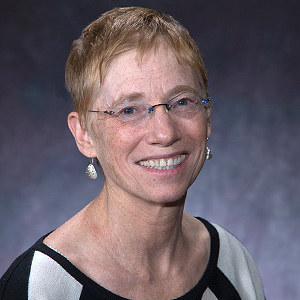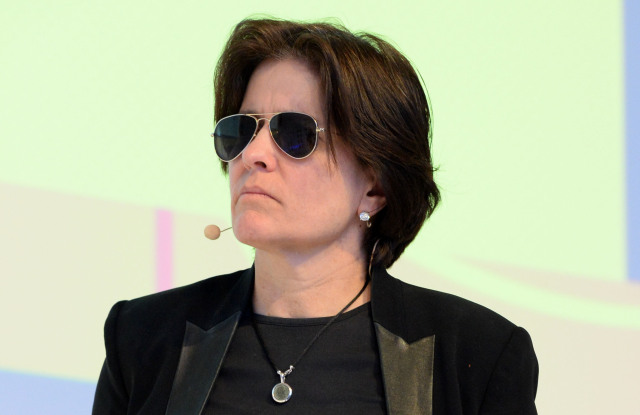Technology Regulation & Copyright
Scholars & Thought Leaders
Karen Yeung
Karen is Professor at the University of Birmingham where she is Interdisciplinary Professorial Fellow in Law, Ethics and Informatics. She is actively involved in several technology policy and related initiatives in the UK and worldwide, including those concerned with the governance of AI, one of her key research interests.
Conference at the Alan Turing Institute: Transparency in algorithmic decision-making

Siva Vaidhyanathan
Siva Vaidhyanathan is the Robertson Professor of Media Studies and director of the Center for Media and Citizenship at the University of Virginia. Vaidhyanathan directs the Center for Media and Citizenship at the University of Virginia, which produces a television show, a radio program, several podcasts, and the Virginia Quarterly Review magazine.

James Meese
James studies media law and policy. He currently holds an early career research fellowship from the Australian Research Council to study the algorithmic distribution of news. James has also received funding from the International Association of Privacy Professionals and the Australian Communications Consumer Action Network. His two books are Authors, Users, Pirates: Subjectivity and Copyright Law (MIT Press) and Death and Digital Media (Routledge, co-authored).
- Facebook, news media and platform dependency: The institutional impacts of news distribution on social platforms (2021)
- Telecommunications Companies as Digital Broadcasters: The Importance of Net Neutrality in Competitive Markets (Links to an external site.) (2020)

Niva Elkin-Koren
Niva Elkin-Koren is the Founding Director of the Haifa Center for Law & Technology (HCLT), a Co-Director of the Center for Cyber, Law and Policy. Her research focuses on innovation policy and access to knowledge, digital governance, online platforms, and the legal implications of AI and big data. She is currently studying the implications of governmental access to data for data-driven-innovation. She is also interested in predictive justice and seek to develop new measures for keeping a check on algorithmic adjudication.

Yoonmo Sang
Senior Lecturer in the Faculty of Arts & Design at the University of Canberra where he is a member of the News & Media Research Centre. He researches the intersections of new media technologies and the law, focusing on how socio-cultural and technological changes advantage and/or disadvantage different stakeholders. His research interests also include civic and community engagement through social media and individuals’ attitudes and behavioral intentions regarding new media technologies.

Wenhong Chen
Dr. Wenhong Chen is associate professor of media studies and sociology at the University of Texas at Austin. Her research has focused on digital media technologies in entrepreneurial and civic settings. Dr. Chen has more than 70 publications, including articles in top-ranked journals in the fields of communication and media studies, sociology, and management.

Patricia Aufderheide
Professor of Communication Studies in the School of Communication at American University in Washington, D.C. She founded the School’s Center for Media & Social Impact, where she continues as Senior Research Fellow. She is also a member of the Film and Media Arts division in the School of Communication.

Elinor Carmi
Elinor Carmi is a digital rights advocate, researcher and journalist who has been working, writing and teaching on deviant media, internet standards, cyber-feminism, software studies, sound studies and internet governance. In November 2017, Carmi defended her doctoral dissertation (Media and Communications Department at Goldsmiths, University of London), titled: “Processing spam: Conducting processed listening and rhythmedia to (re)produce people and territories”, passing without corrections. Currently a Postdoctoral researcher at The University of Liverpool.

Daphne Keller
She directs the Program on Platform Regulation at Stanford’s Cyber Policy Center, and was formerly the Director of Intermediary Liability at CIS. Her work focuses on platform regulation and Internet users’ rights. Her recent work (Links to an external site.) focuses on legal protections for users’ free expression rights when state and private power intersect, particularly through platforms’ enforcement of Terms of Service or use of algorithmic ranking and recommendations.

Julia Angwin
She is co-founder and editor-in-chief of The Markup, a nonprofit newsroom that investigates the impact of technology on society. She was a senior reporter at ProPublica from 2014 to April 2018. and staff reporter at the New York bureau of The Wall Street Journal from 2000 to 2013. Angwin is author of non-fiction books, Stealing MySpace: The Battle to Control the Most Popular Website in America (2009) and Dragnet Nation (2014).

Kara Swisher
American journalist he is an opinion writer for The New York Times, a contributing editor at New York, the host of the podcast Sway, and the co-host of the podcast Pivot.
- Podcast, Sway
- Inside the decision of Trump’s Facebook Facebook Fate
- There Must Be a Pony in Here Somewhere: The AOL Time Warner Debacle and the Quest for a Digital Future (2003)

Film & Video
What Indians Think Of TikTok Ban In India | STREET DEBATE
Right now, there is a lot of controversy surrounding the popular social media platform TikTok with the US in talks to ban the app. But did you know that it was already banned in some countries? On June 29, the Indian government announced that it would ban 59 Chinese apps from the country, including TikTok. As there were over 120 million TikTok users in India alone before the ban, we thought it would be interesting to see what Indians thought about this issue.
Source: Asian Boss
Chinese React To Potential TikTok Ban In The US | STREET DEBATE (2020)
TikTok is a popular social media app that everybody seems to be talking about these days. The Chinese company-owned app is facing a potential ban in the US over data privacy concerns unless it gets acquired by a US company. This issue is getting a lot of media coverage, but have you wondered how ordinary Chinese citizens feel about the whole situation? We hit the streets of Shanghai to find out.
Source: Asian Boss
Books & Articles
Building Consentful Tech (2017)
A lot of us know about consent with regard to our physical bodies, like in the context of medical decisions or sexual activities. But when it comes to our digital lives, there’s a lack of discussion about what consent means for our data, our identities, and our online interactions.
The Consentful Tech Project raises awareness, develops strategies, and shares skills to help people build and use technology consentfully.
Algorithmic regulation: A critical interrogation’ in Regulation & Governance
Innovations in networked digital communications technologies, including the rise of “Big Data,” ubiquitous computing, and cloud storage systems, may be giving rise to a new system of social ordering known as algorithmic regulation.

Why algorithms can be racist and sexist
Humans are error-prone and biased, but that doesn’t mean that algorithms are necessarily better. Still, the tech is already making important decisions about your life and potentially ruling over which political advertisements you see, how your application to your dream job is screened, how police officers are deployed in your neighborhood, and even predicting your home’s risk of fire.
Source: Vox

